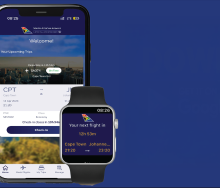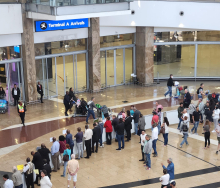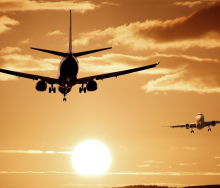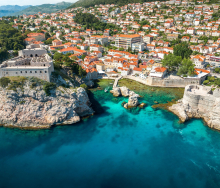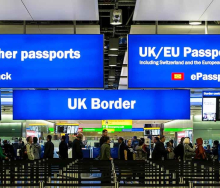“Rich in contrast, compact in size and big in hospitality!”
That’s how Sarah Njanji, Vice Consul Tourism at the Malawi Consulate in Johannesburg describes Malawi in a nutshell.
Malawi has several national parks, which are enjoying more and more attention for the successes of their conservation efforts over the past 20 years and for the richness of their wildlife offerings.
Lake Malawi is probably the country’s most well-known attraction but not many think of it as an unspoiled wilderness with its own particular wildlife offering.
It is the third largest lake in Africa (after Lake Victoria and Lake Tanganyika), and the second deepest (after Lake Tanganyika). It’s a Unesco World Heritage Site and has more fish species than any other lake in the world, including many hundreds of cichlid fish species, nearly all of which are endemic to Lake Malawi, known locally as ‘mbuna’. The cichlids are of great interest to evolutionary biologists due to the isolation of the lake from other water bodies.
Njanji said for South Africans who love the great outdoors, the lake is an ideal spot. And for fishermen, it’s paradise. Tigerfish, lake salmon, black bass, bream and trout are just some of the huge diversity of species.
Sailing, kayaking, swimming, scuba diving and snorkelling in the crystal-clear waters of the lake, or just relaxing on the beaches are all popular pastimes for holidaymakers.
Wildlife and nature
There is much more to Malawi than the lake, according to Njanji. The Central African country has become a Big 5 destination.
*At the southern end of the lake is Lake Malawi National Park, encompassing 97 sq km of land and the southern waters of the lake. Aside from the fish in the lake, the park is also home to hippo, crocodile, leopard, common duiker, bushbuck, greater kudu, klipspringer, chacma baboons and vervet monkeys.
Bird enthusiasts can anticipate sightings of African Fish Eagles, cormorants, several wading species, kingfishers, hornbills, nightjars, kestrels and bee-eaters, plus many others.
Kaya Mawa Lodge on Likoma Island on the lake gives guests the chance to explore the island with scuba diving and snorkelling adventures. Book with Siyabona Africa, which has many different accommodation options at the lake. https://www.siyabona.com/malawi-safari-experience
*Liwonde National Park in the south of the country is the home of some of the great success stories in wildlife management, including translocation and reintroduction of iconic species such as Black rhino, elephant and hippo. When African Parks joined the Malawi Dept of Wildlife in managing the park in 2015, it was the centre of human-wildlife conflict. Since then, the park has seen the reintroduction of predators such as lion and cheetah. In 2016 Liwonde was the epicentre of one of the largest elephant translocations in history, when 336 elephants were relocated from Liwonde to Nkhotakota to reduce pressure on Liwonde’s natural habitat and help address human-wildlife conflict situations around the park.
Liwonde has become an icon of wildlife management, having established one of the most effective ranger forces and training grounds in southern Africa; integrated advanced technology to protect and monitor wildlife and management activities and orchestrated historic animal reintroductions.
Mvuu Camp in Liwonde overlooks the Shire River. It offers river safaris, day and night game drives and nature walks. Accommodation is in 12 stone and canvas chalets and family tents. Siyabona Africa sells Mvuu Camp in the South African market. https://www.siyabona.com/malawi-lodges-mvuu-camp-liwonde-park
*Nkhotakota Wildlife Reserve is regarded as a great gain in the conservation world. This 1 800 sq km reserve once contained as many as 1 500 elephants but poaching had reduced the population to fewer than 100 by 2015, and other key species had largely been hunted out. With no game, there was no tourism and no jobs.
The transfer of 500 elephant and 2 000 other game from Liwonde and Majete over two years breathed life into Nkhotakota. Now, with a well-trained and equipped ranger team, and strong community engagement, the wildlife is restored, Nkhotakota’s tourism is flourishing, employment has increased and livelihood projects are running. Book with Robin Pope Safaris for Tongole Wilderness Lodge in Nkhotakota Park.
https://www.robinpopesafaris.net/camps-lodges/tongole-wilderness-lodge/
*It is yet another conservation triumph that has made Majete National Park, in the southwest of Malawi, the success it is today.
Around 20 years ago it was nearly devoid of wildlife, now it is one of Malawi’s premier Big 5 parks, with thriving animal populations and plentiful birdlife. has Over the past 18 years, Majete has reintroduced rhino, elephant, lion, giraffe, cheetah and wild dog.
Thawale Lodge in the Majete National Park has six tented chalets and overlooks a waterhole. It has special rates for SADC citizens. See https://www.africanparks.org/thawale-camp
Guests at Majete can meet and interact with local communities, learn more about their traditional lifestyle, sample traditional foods and enjoy local dancing.
They are also offered guided walks to explore the reserve’s spectacular and diverse landscape, encountering wildlife along the way.
Culture
Malawi is known as the ‘Warm heart of Africa’ for a reason – it’s because of the people. Njanji pointed out an interesting cultural experience – the Mua Mission in Central Malawi.
The Mission houses the Chamare Museum with its permanent display of the culture of Malawi’s three main tribes, the Chewa, Yao and Ngoni. It’s a vibrant cultural centre, providing insights into the history and culture of Malawi, the rites of passage, the tribes’ interactions with one another and their encounter with Islam and Christianity. It also holds a unique display of ritual dance masks, texts and images. The museum holds a cultural and dance festival in August each year.
SAA has recently restarted its flights from Johannesburg to Malawi. It’s a triangular routing, Johannesburg-Blantyre-Lilongwe-Johannesburg, with flights on Thursdays and Sundays. From March 31 until the end of October 2023, the summer schedule takes effect. SA172 departs JNB at 10h10 and arrives in BLZ at 12h30. It then departs BLZ at 13h20 and arrives in LLW at 14h10. The flight then departs LLW at 15h00, arriving in JNB at 17h40.


